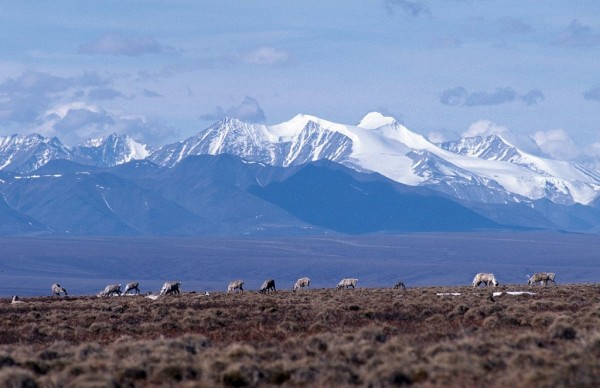
A federal judge Tuesday denied requests that she block the Trump administration from issuing oil leases in the Arctic National Wildlife Refuge.
U.S. District Court Judge Sharon Gleason’s ruling means the federal government can continue with its plans to hold the refuge’s first-ever oil lease sale Wednesday.
RELATED: Here’s what you need to know about the Arctic National Wildlife Refuge’s first-ever oil lease sale
It’s a win for the Trump administration, which has pushed to lock in drilling in the refuge in its final weeks, before President-elect Joe Biden takes office and can try to stop it.
The Trump administration is offering 10-year leases to 22 tracts of land that cover about 1 million acres in the northernmost slice of the refuge, known as the coastal plain.
Gleason’s decision Tuesday came in three lawsuits filed this fall by an array of groups, including environmental organizations and the Gwich’in Steering Committee.
Read Judge Gleason’s decision here.
In court documents, the groups argue that the federal government failed to follow numerous laws meant to protect wildlife, land, water and people when it crafted its oil-leasing program for the refuge.
They then requested preliminary injunctions.
That means they basically asked Gleason to stop the Trump administration from issuing any oil leases in the refuge — and from authorizing any seismic work to explore for oil there — until their broader lawsuits are decided.
On Tuesday, Gleason denied those requests.
It’s a high legal bar to get an injunction.
Gleason said the groups that filed the lawsuits failed to show that they’d suffer “irreparable harm” if leases were issued, since the oil companies would still have to get additional permits before drilling wells or searching for oil.
Also, Gleason said she could not halt seismic exploration because the government hasn’t yet approved a proposal to do the work. She said the groups could try again for an injunction once the proposal is approved.
Gleason’s decision Tuesday is not a ruling on the merits of the broader lawsuits.
Those court cases will continue.
Earthjustice attorney Erik Grafe, who represents environmental groups in one of the lawsuits, said he was disappointed with Tuesday’s ruling, but the fight is not over.
“We will continue to press our case that the agency approved the program unlawfully and that its decision should be overturned,” Grafe said in a written statement.
In a statement from the U.S. Interior Department, spokesperson Nicholas Goodwin described Gleason’s ruling as “expected and unsurprising.”
“The Department of the Interior looks forward to proceeding with appropriate dispatch to achieve the clear direction it received from Congress in 2017,” Goodwin said.
After a decades-long debate, a Republican-led Congress opened the coastal plain to drilling in 2017. It also ordered the government to hold the first lease sale there by the end of this year.
Gleason was appointed to the federal bench by Democratic former president Barack Obama, and she has ruled against several of the Trump administration’s pro-development initiatives in Alaska.
Reach reporter Tegan Hanlon at thanlon@alaskapublic.org or 907-550-8447.




